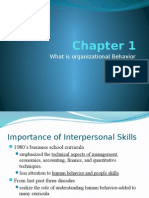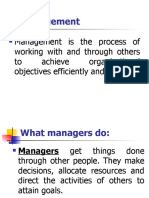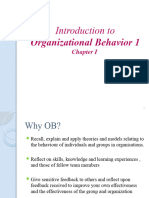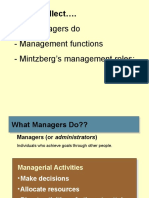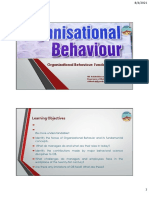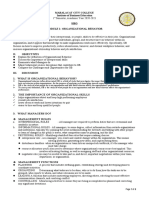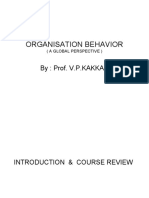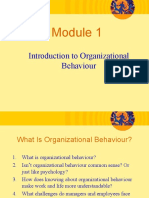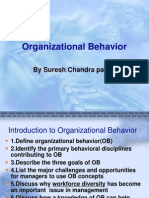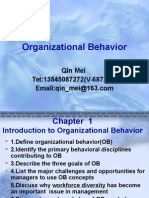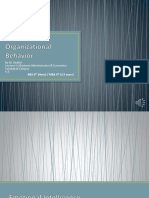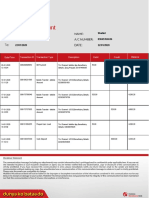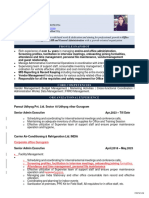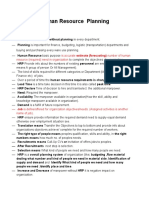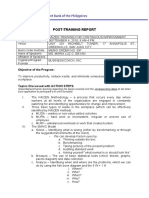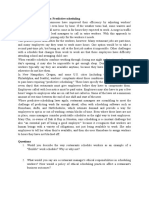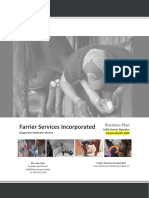0% found this document useful (0 votes)
60 views31 pagesOrganizational Behavior: by M Shahid Lecturer in Business Administration & Economics Faisalabad Campus U.E
This document defines and discusses organizational behavior. It begins by defining organizational behavior as the field of study that investigates how individuals, groups, and structure impact behavior within organizations. It then discusses key management functions like planning, organizing, leading, and controlling. It also outlines management roles, skills, and activities. Finally, it discusses contributing disciplines to organizational behavior like psychology, social psychology, sociology, and anthropology and concludes that organizational behavior examines human behavior in work environments and how to improve organizational effectiveness.
Uploaded by
Shahid IqbalCopyright
© © All Rights Reserved
We take content rights seriously. If you suspect this is your content, claim it here.
Available Formats
Download as PDF, TXT or read online on Scribd
0% found this document useful (0 votes)
60 views31 pagesOrganizational Behavior: by M Shahid Lecturer in Business Administration & Economics Faisalabad Campus U.E
This document defines and discusses organizational behavior. It begins by defining organizational behavior as the field of study that investigates how individuals, groups, and structure impact behavior within organizations. It then discusses key management functions like planning, organizing, leading, and controlling. It also outlines management roles, skills, and activities. Finally, it discusses contributing disciplines to organizational behavior like psychology, social psychology, sociology, and anthropology and concludes that organizational behavior examines human behavior in work environments and how to improve organizational effectiveness.
Uploaded by
Shahid IqbalCopyright
© © All Rights Reserved
We take content rights seriously. If you suspect this is your content, claim it here.
Available Formats
Download as PDF, TXT or read online on Scribd
/ 31

